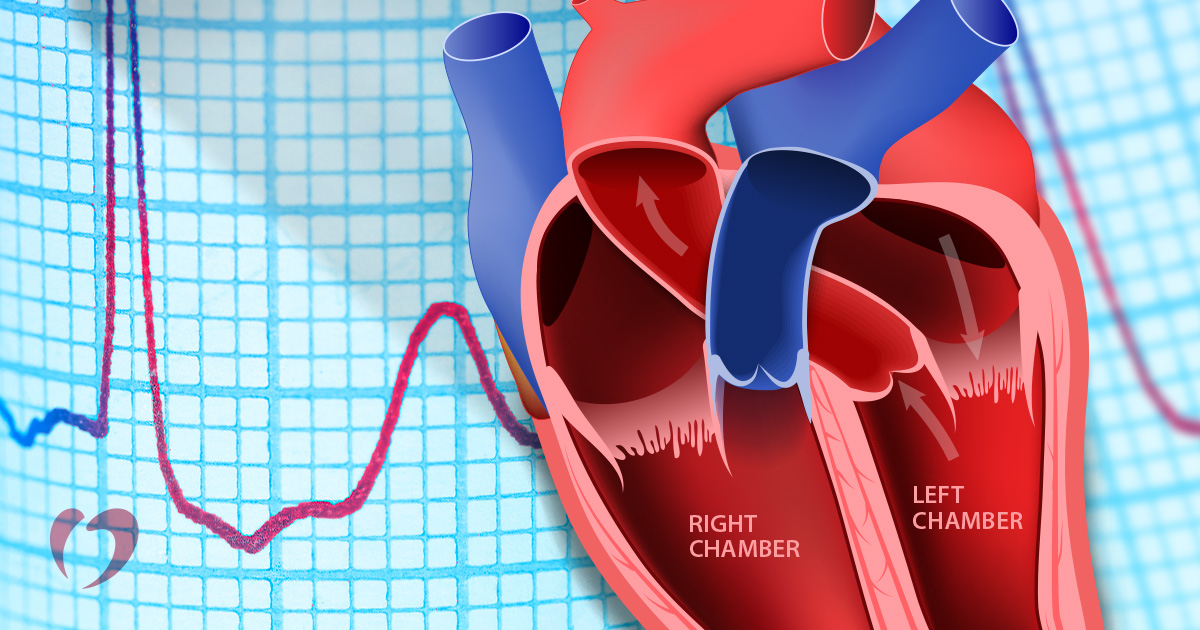What is Heart Block ?
Heart block, also known as AV block, occurs when the electrical signal that regulates your heartbeat is partially or completely disrupted. This causes your heart to beat slowly or skip beats, and your heart to be unable to effectively pump blood. Dizziness, fainting, tiredness, and shortness of breath are some of the symptoms. Implanting a pacemaker is a common treatment.
What happened if I have a heart block?
Electrical signals normally travel from your heart’s upper chambers (atria) to its lower chambers (ventricles). The AV node is a cluster of cells that acts as a bridge, connecting electrical activity from the top chambers of your heart to the bottom chambers. If you have a heart block, the electrical signal does not travel to the ventricles via the AV node. As a result, your heart does not function properly, meaning it beats slowly or skips beats and cannot pump blood through its chambers and out to the body as a normal heart would.
Is heart block a serious or dangerous condition?
It is possible. The type of heart block, its location and severity, as well as the symptoms, differ from person to person. Severe heart block, if left untreated, can cause sudden cardiac arrest (your heart suddenly stops beating), but it is more commonly associated with lightheadedness or fainting spells.
Who is at risk of a heart attack?
You are more likely to have a heart block if you have:
• Your mother suffers from an autoimmune disorder such as lupus.
• You’re getting older. The risk of heart blockage rises with age.
• You have other heart problems, such as coronary artery disease and heart valve disease.
• You were born with heart defects.
• You have a heart disease, such as rheumatic heart disease or sarcoidosis.
• Your vagus nerve is overactive (causes the heart to slow down).
• You take medications that slow the conduction of electrical impulses in the heart, such as beta blockers, calcium channel blockers, and digoxin, as well as high blood pressure medications, antiarrhythmics, muscle relaxants and sedatives, antidepressants and antipsychotics, diuretics, and lithium.
What are the symptoms?
Heart block symptoms differ depending on the type of block.
- 1st degree heart block:
- There may be no symptoms.
- Although heart rate and rhythm are usually normal, this condition can be detected during a routine electrocardiogram (ECG).
- Athletes, teenagers, young adults, and people with a highly active vagus nerve are all at risk for first-degree block.
Symptoms of second-degree:
- Fainting and dizziness.
- Pain in the chest.
- Feeling exhausted or tired.
- Breathing difficulty.
- Palpitations in the heart.
- Fast Breathing
- Nausea.
Symptoms of third-degree:
- Dizziness and fainting
- Pain in Chest
- Feeling exhausted or tired.
- Breathing difficulty.
How it is diagnosed?
Your cardiologist may refer you to an electrophysiologist. Electrophysiologists are doctors who study the electrical activity of the heart.
Tests might be advised to diagnosed Heart Blockage –
Electrocardiogram (ECG)
An electrocardiogram (ECG) is a recording of your heart’s electrical activity, including its rate and rhythm, as well as the timing of electrical signals as they travel through your heart. This test can aid in determining the severity of a heart block (if one exists). To collect more information about your heart’s electrical activity, you may need to wear a portable ambulatory monitor device, such as a Holter monitor or an event recorder, for 24 to 48 hours or longer. If you need to use a monitor, you will be given detailed instructions on how to do so.
An implantable loop recorder is a small device that is injected under your chest skin and can monitor your heart rhythm for up to five years. This is implanted as an outpatient procedure in a matter of minutes and is useful for patients who have infrequent but significant episodes with no clear explanation for their cause.
An electrophysiology study will require inserting a long, thin tube called a catheter through a blood vessel and guiding it to your heart to measure and record electrical activity from within your heart. If you require this test, you will be given more information.
A What are the consequences of a heart block?
Complications can be fatal, and they include:
Failure of the heart.
Arrhythmia (irregular heartbeat).
A heart attack occurred.
Sudden (Unexpected) cardiac arrest.
Treatment for it !
To determine how to manage your condition, your cardiologist will assess how heart block (its type, location, and severity) affects your heart’s ability to function, as well as your symptoms. Symptoms and treatment differ from one person to the next.
Changing medications or treatment for heart disease can sometimes stop heart block.
First-degree heart block: You probably won’t need treatment if you have first-degree heart block.
Second-degree heart block: If you have second-degree heart block and experience symptoms, you may require a pacemaker to keep your heart beating normally. A pacemaker is a small device that delivers electrical pulses to your heart.
Third-degree heart block: Third-degree heart block is frequently discovered during an emergency. A pacemaker is almost always used as part of the treatment.
How to prevent it –
Some cases of heart block may be congenital (present at birth). However, the majority of heart block develops after birth. Some causes are unavoidable. We also know that the risk of heart block and heart disease increases with age. Some causes of heart disease can be avoided.
You can take the following steps to keep your heart and body as healthy as possible:
Maintain a heart-healthy lifestyle by eating a heart-healthy diet, exercising regularly, getting enough sleep each night, reducing stress, limiting alcohol, and quitting smoking and using illegal drugs.

